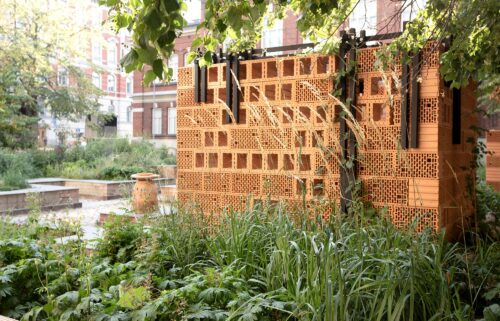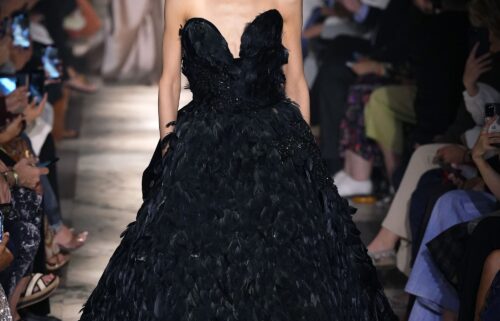Sober travel is a hot trend. But for some travelers, it’s a way of life
By Lilit Marcus, CNN
(CNN) — Alison Sinclair’s trip to Turks and Caicos was supposed to be one of the best times of her life. But while on an island getaway with her best friend, she skipped beach time and swimming in favor of the bar, getting so drunk every day that she alienated her friend and they stopped speaking.
Now, 11 years of sobriety later, Sinclair still barely remembers what Turks and Caicos looked like. As she started on a journey of rebuilding her life – and reconciling with her friend – she made a promise to herself: this time, she’d travel the world with complete use of her faculties.
While Sinclair’s decision to give up drinking was very personal, she’s just one of the many travelers who have been asking major tourism companies to make sober-friendly itineraries.
And their requests have been heard. Many major travel brands – from Hyatt Hotels to Norwegian Cruise Line – are not only offering alcohol-free experiences but marketing them.
Although there have always been travelers who eschew alcohol for a variety of reasons, such as religious observance or health, the growing “sober curious” movement has extended into tourism, often as part of a bigger trend toward wellness.
According to the World Health Organization, three million deaths every year are attributable to alcohol. Among people aged 20-39, that number peaks, with 13.5% of deaths globally being in some way caused by alcohol.
Putting it into practice
We Love Lucid, a UK-based sober travel company, shows a potential model for a new generation of travelers who want to be sober on the road but don’t belong to any particular recovery program.
In fact, says founder Lauren Burnison, “from the very beginning I chose not to use words on my website and in my marketing, such as ‘addiction’ and ‘recovery,’ because there’s a lot of people that are in the middle of this continuum.”
Many of the participants on We Love Lucid trips don’t identify as alcoholics or say they are in recovery, and they’ve chosen not to drink for a variety of reasons.
Like Sinclair, Burnison found that when she quit drinking she suddenly had a lot more disposable income – and a whole world to spend it in. While visiting the Spanish town of Ronda, which is about 65 miles east of Malaga, she hit on an idea: if she found sober travel so fun and illuminating, wouldn’t other people like it too?
Now, We Love Lucid organizes group trips to lesser-touristed destinations like Ronda – where Burnison ended up moving in 2019. Days are filled with sightseeing, kayaking and tapas-making classes.
“The whole thing behind the going away on an alcohol-free trip with a bunch of other people that don’t drink … it’s about the connection. It’s about connecting to other people that have had a similar life experience to you,” Burnison says. “(Travelers) bonded really quickly, and really deeply, because there’s that shared vulnerability.”
“Sober curious” is a term coined by British writer Ruby Warrington in her 2018 book of the same name. Warrington’s book is widely credited with giving voice to a new kind of sober-ish person, who doesn’t belong to a specific faith or credo and can simply be drinking less rather than quitting completely.
But Burnison wants to draw a line between sober curious and sober. Socializing without alcohol can be challenging for people who are new to recovery, and there aren’t opportunities to be tempted by seeing other people imbibe.
Even alcohol mega-brands are getting in on the action. Some of the world’s largest beer companies, like Asahi and ImBev, are now marketing their own low- or zero-alcohol beverages.
Jen Batchelor, CEO of the nonalcoholic beverage brand Kin Euphorics, told CNN in 2019 that “sober curiosity is a real thing.” For a long time, she says, she thought the only two options at night were to go out drinking or to stay home and do nothing.
Now, sober bars across the US are catering to a new audience, while still offering tasty, colorful drinks and opportunities to socialize.
And travel companies have stepped in to support those same consumers when they want to leave the safe confines of their communities.
Meeting people where they are
In some cases, the creation of a sober travel product wasn’t because of feedback from customers – it was because of feedback from staff.
Deon de Villiers, who runs the bespoke travel company Safari Guru, says that one of his staff members checked in to a wellness center to cope with their drinking, which was exacerbated by Covid.
This employee then got De Villers to think about how a sober person might feel challenged while on safari.
“When you go on a safari, every safari lodge has got a bar, and the bar is in your face,” he says. “So what we try and do is we try and remove that element out of the camp and rather put other colorful drinks and things and educate the staff on providing beautiful cocktails that are not alcoholic.”
Because Safari Guru already heavily customizes its trips, de Villers says it was easy to begin offering sober safaris. For him, the most important part was keeping all the traditional elements of safaris – game drives, tented camps and the like – in place while swapping out some of the boozy traditions.
“The client still wants to watch the sunset and they still want the acacia tree,” he says. But now, sundowners are replaced by pretty, Instagram-worthy mocktails.
He agrees with Burnison, the founder of We Love Lucid, that simply not serving alcohol is only part of the equation.
“That’s why we like the group approach. So you’re with like minded individuals. A lot of these people, a lot of them need support as well, and that’s what we found. The individuals that we actively engage with, they want to interact with other people that are sober themselves.”
And, to come full circle, these sober safari trips are led by the sober employee who suggested the program in the first place.
Dry January … and February …
Nonprofit Alcohol Change UK came up with the Dry January campaign in 2013.
The concept was simple: after a decadent December full of holiday feasts, people could spend the next month abstaining from alcohol as a way to detox and get healthy again in the New Year.
According to data from CGA, a company that researches food and drink trends, 35% of Americans over the legal drinking age opted to participate in Dry January 2022.
And Dry January offers brands and consumers alike the chance to try out a no-drinking lifestyle without fully committing.
The hotel chain Hyatt first experimented with a mocktail menu for Dry January at a few of its properties in the United States. When it proved successful, Hyatt deepened their commitment, creating the Zero Proof Zero Judgment program and rolling it out across the country.
“While we received requests for non-alcoholic drinks long before sober travel really took off, through listening to our guests, members and colleagues, we knew there was a real demand for options that allow for a more mindful relationship with alcohol,” Miranda Breedlove, Hyatt’s national director of bars and lifestyle operations, tells CNN Travel.
“As the name says, we want to ensure there’s no judgment – a guest may not be drinking alcohol for many reasons.”
Sober travel may be a big trend in the tourism industry right now. But for Alison Sinclair, it’s simply her life.
Since getting clean, she has now traveled to countries as far-flung as Burundi, Papua New Guinea and Yemen. And she has been to Alcoholics Anonymous meetings in nearly all of them.
The-CNN-Wire
™ & © 2023 Cable News Network, Inc., a Warner Bros. Discovery Company. All rights reserved.


